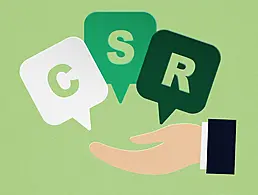Upskilling is the new black, but when it comes to hard v soft skills, what takes precedence and is there much of a difference between the two?
There are a couple of conundrums in this life, such as which came first, the chicken or the egg? Were Ross and Rachel really on a break? And, what is more valuable in the workplace, hard or soft skills?
The answers for the first two are fairly straight forward, biologists (for the most part) agree that the egg came first and fans of Friends, (for the most part) incorrectly agree that Ross and Rachel were indeed on a break.
The final conundrum, regarding hard and soft skills isn’t as simple. Both are essential forms of know-how, crucial to the smooth running of any workplace. With that in mind, what are some of the most useful hard and soft skills, where do they intersect and how are they different?
What’s what?
Though hard and soft skills are both important to the overall success of a workplace, they are quite different in terms of how they are approached and the effect they have on staff and the working environment.
Hard skills can be defined as quantifiable attributes that a person can acquire through upskilling, such as proficiency in foreign or coding languages, UI/UX design and data analysis. They are the foundational abilities an applicant has to have when applying for a certain position. Basically, they are the skills that prove to a prospective employer that you have the tools to meet the expectations of the role from the get-go.
Soft skills, on the other hand, are a little more complicated to define and quantify. The term is typically used for skills that build character and foster a work environment that is focused on collaboration and communication. These skills can include the ability to work with a team, strong conflict resolution and sensitivity towards difficult at-work topics.
Some of these skills are often talents we naturally possess, for example active listening or empathy, but others, such as emotional intelligence and strategic thinking can take considerable effort to learn and are rarely perfected.
Where as hard skills may open the door for you, it is often the soft skills that keep you in a company, propelling you up the ladder. The ability to lead a team, appropriately address sensitive topics, engage with a broad network and organise yourself and others, are highly prized skills that positively impact companies in the long-term.
Is it one or the other?
When it comes to hard and soft skills, it isn’t really a case of choosing one to the detriment of the other. They tend to be mutually complementary and neither is going to grant long-term success in the absence of the other.
For example, you could have exemplary talents in the area of AI, but ultimately that will be fruitless if you have poor time-management skills or struggle to communicate in a professional manner.
Rather than choosing one tenet over the other, employers should encourage their staff to seek out new upskilling opportunities, particularly any activity that requires collaboration, as this artfully marries hard and soft skill tasks.
Working together on upskilling projects will not only foster a cohesive and collaborative working environment, but also, maximise on workplace efficiency around team training.
It isn’t only employers who can sometimes disproportionately value hard over soft skills. When it comes to CVs, candidates often prioritise hard skills in lieu of more character based attributes.
Job application documents should be short and to the point, but soft skills are growing in terms of sway with recruiters and employers, so it can be advantageous to include a soft skills section. It is likely these skills, such as deadline management, adaptability and professional demeanour, will be referenced in an interview anyway, as they are skills that will always be required, no matter what job you apply for.
You may find yourself debating the chicken, egg, Ross and Rachel conundrums many times throughout your life. But at least, in relation to which is more valuable, hard or soft skills, there is a definitive answer, neither, as both are pivotal to the creation of a well-rounded individual.
Find out how emerging tech trends are transforming tomorrow with our new podcast, Future Human: The Series. Listen now on Spotify, on Apple or wherever you get your podcasts.




